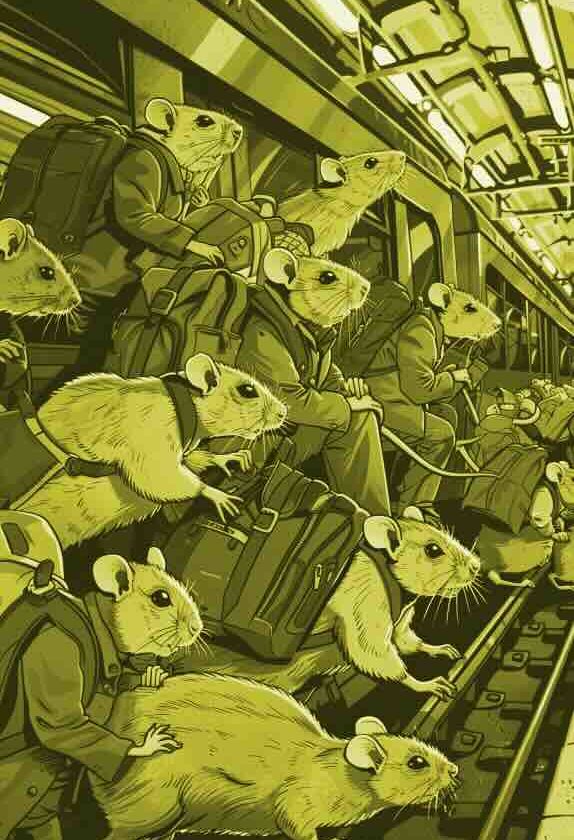Simplification is the work of geniuses or simpletons.
What strikes me most in our time is the great tendency to simplify everything. Conspiracy theories are an attempt to simplify the causality of events, even when this often leads us further from the truth. The human mind struggles to grasp contradictions. Yet, it is from these contradictions that complexity and depth arise. Dualism pushes us to see the world in black and white, when it is mainly composed of shades of gray. Naturally, we tend towards simplification, making us potential conspiracy theorists.
Pareto’s Law, the Mother of Conspiracy?
One concept that has been popularized in the entrepreneurial world online in recent years is the Pareto Principle, or the 80/20 rule, stating that 80 percent of consequences come from 20 percent of causes. In some cases, this ratio goes up to 95/5 or even 99/1. This is where the temptation to simplify everything becomes great. If this rule is often true, one can easily extrapolate it to the causality of events. Thus, all great catastrophes would each originate from a single cause. It’s tempting, it’s a comfort to the mind, but that’s not how one can think about the world accurately. For example, when considering the causes that led to World War II, it is an extreme simplification to say that it was the capitalist will of the European elites that led to the conflict. Often, the obvious motives are actually just consequences of a pre-existing ground with multiple ramifications. German expansionism in the 1930s was linked to the fear posed by its European neighbors, most of whom were colonial powers. Similarly, this expansionism was made possible by the country’s advanced industrialization. The impoverishment of Germany resulting from World War I and the 1929 crisis allowed the proliferation of populist ideas. European pacifism, in reaction to World War I, could not nip Germany’s militarization in the bud. And one could continue indefinitely to trace the chain of causes leading to World War II. In reality, it was a succession of events and choices that led to the greatest global conflict, not just the will of an elite.
From Contradiction Comes Complexity, and Conspiracy Theories Don’t Last Long Under Its Assault
Since the dawn of human civilization, people have sought to explain the mysteries of the natural world and make sense of the ridiculous complexity that prevails. We have used our imagination to create complex explanations for things, often taking the form of conspiracy theories. These theories are composed of multiple layers of complex elements such as assumptions, claims, and threads that must all be brought together to form a coherent story.
At the same time, however, this complexity can be its own undoing. From contradiction comes complexity, and as each thread is withdrawn, the conspiracy quickly loses its initial cohesive grip and rapidly falls apart into nothingness. Once the lengths of a conspiracy become too convoluted, it simply cannot be sustained and must give way to a more realistic truth that grasps this complexity.
A popular conspiracy theory surrounding the death of rap icon Tupac has suffered an assault related to complexity. This theory claims that Tupac is still alive and in hiding, a claim that has driven some people to incredible lengths to find supporting evidence. However, as more evidence and assumptions emerged, the theory not only failed to provide coherence but also caused a wave of confusion due to the inherent complexity of such claims.






